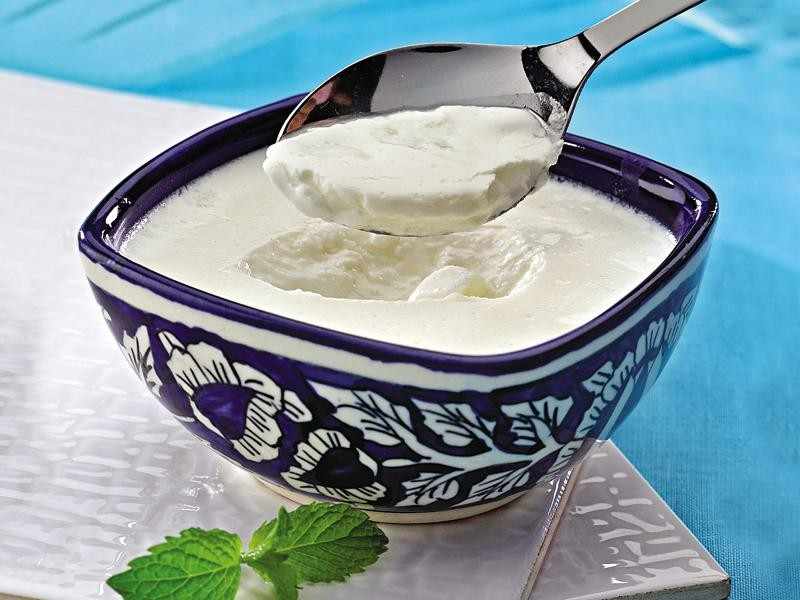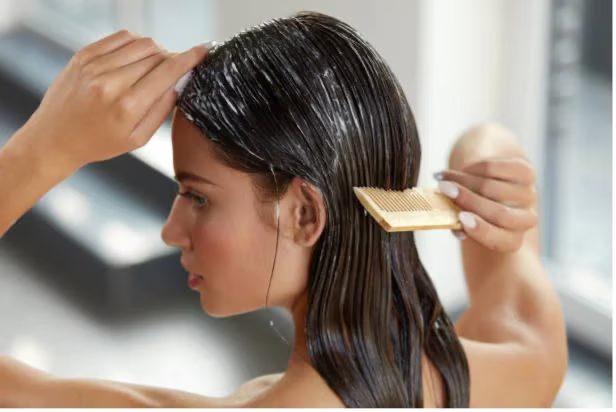Introduction
Curd, known as yogurt in many parts of the world, has been consumed for centuries across various cultures. This humble dairy product, formed through the bacterial fermentation of milk, has earned its place as a staple in kitchens worldwide. Not only is curd delicious and versatile, but it also packs a powerful nutritional punch that can transform your health, enhance your skin’s radiance, and strengthen your hair. In this comprehensive guide, we’ll explore the myriad benefits of curd and why incorporating it into your daily routine might be one of the best decisions for your overall wellbeing.
As we delve deeper, you’ll discover that this probiotic-rich food offers far more than just a pleasant taste—it’s a natural remedy for numerous health concerns and a beauty elixir hiding in plain sight in your refrigerator. Whether you’re looking to improve your digestion, boost your immunity, achieve glowing skin, or strengthen your hair, curd has something exceptional to offer.
What Exactly Is Curd?
Before diving into the benefits of curd, let’s understand what it actually is. Curd is a dairy product obtained by coagulating milk through a process called curdling. This process involves adding beneficial bacteria (known as starter culture) to milk, which ferments the lactose (milk sugar) into lactic acid. This fermentation process not only gives curd its distinctive tangy flavor but also creates the thick, creamy texture we all love.
The fermentation process transforms ordinary milk into a probiotic powerhouse, teeming with beneficial bacteria that support gut health. Unlike many processed foods, curd is a living food—containing active cultures that continue to provide benefits even after consumption.
Nutritional Profile of Curd

Curd is a nutritional powerhouse packed with essential nutrients that contribute to its numerous health benefits. Here’s what makes curd such a nutritionally dense food:
- Protein: Curd is an excellent source of high-quality protein, containing all nine essential amino acids.
- Calcium: A single cup of curd provides approximately 30% of your daily calcium needs.
- Vitamins: Rich in B vitamins, particularly B2 (riboflavin) and B12, as well as vitamin D if fortified.
- Minerals: Contains significant amounts of phosphorus, potassium, and magnesium.
- Probiotics: Live bacterial cultures like Lactobacillus bulgaricus and Streptococcus thermophilus.
- Low calorie: Regular curd contains approximately 100 calories per cup, making it a nutrient-dense but calorie-light food.
This impressive nutritional profile forms the foundation for the numerous health benefits associated with regular curd consumption.
Health Benefits of Eating Curd
1. Improves Digestive Health
One of the most celebrated benefits of curd is its positive impact on digestive health. The live probiotics in curd help maintain a healthy balance of gut bacteria, which is essential for proper digestion. Regular consumption of curd can:
- Reduce symptoms of irritable bowel syndrome (IBS)
- Help prevent and treat diarrhea, including antibiotic-associated diarrhea
- Alleviate symptoms of inflammatory bowel diseases
- Improve lactose digestion in individuals with lactose intolerance
The probiotics in curd essentially act as reinforcements for your gut’s beneficial bacteria, helping to crowd out harmful bacteria and maintain digestive harmony.
2. Boosts Immune Function
Did you know that approximately 70% of your immune system resides in your gut? This makes the relationship between probiotic curd benefits and immunity particularly significant. The beneficial bacteria in curd can:
- Stimulate the production of natural antibodies
- Enhance the activity of immune cells like T lymphocytes and natural killer cells
- Strengthen the intestinal barrier, preventing harmful substances from entering the bloodstream
- Reduce the risk of respiratory infections and common colds
Regular consumption of curd can be particularly beneficial during flu season or when your immune system needs extra support.
3. Supports Heart Health
What are the benefits of curd for your cardiovascular system? Research suggests that regular consumption of probiotic curd can contribute to heart health by:
- Lowering LDL (“bad”) cholesterol levels
- Reducing blood pressure in hypertensive individuals
- Improving the ratio of HDL to LDL cholesterol
- Reducing inflammation, a key risk factor for heart disease
The peptides formed during the fermentation process in curd production may help reduce blood pressure by inhibiting angiotensin-converting enzymes (similar to how some blood pressure medications work).
4. Weight Management Support
For those concerned about weight management, incorporating curd into your diet might be beneficial. The high protein content promotes satiety, helping you feel fuller for longer. Additionally:
- The calcium in curd may help reduce fat absorption and increase fat breakdown
- Probiotic bacteria may influence hormones that regulate appetite
- Regular consumption may reduce overall calorie intake by increasing feelings of fullness
- The protein content supports muscle maintenance during weight loss
When eaten as part of a balanced diet, curd can be an ally in maintaining a healthy weight.
5. Bone Health Enhancement
With its rich calcium content, curd stands as an excellent food for maintaining bone health. The benefits include:
- Providing readily absorbable calcium for bone maintenance and growth
- Offering vitamin D (in fortified varieties) that enhances calcium absorption
- Containing phosphorus that works synergistically with calcium for bone health
- Potentially slowing bone loss in older adults, reducing the risk of osteoporosis
Regular consumption of curd throughout life contributes to optimal bone density and strength.
6. Blood Sugar Regulation
Emerging research suggests that what are the benefits of eating curd extend to blood sugar control as well. The probiotic bacteria in curd may:
- Improve insulin sensitivity
- Reduce inflammation that contributes to insulin resistance
- Slow gastric emptying, leading to more gradual rises in blood sugar after meals
- Potentially reduce the risk of developing type 2 diabetes
For those already managing diabetes, incorporating unsweetened curd into meals may help moderate post-meal blood sugar spikes.
Curd Benefits for Skin

1. Natural Moisturizer
When it comes to curd benefits for skin, its moisturizing properties are truly remarkable. The lactic acid in curd:
- Gently exfoliates dead skin cells
- Helps skin retain moisture
- Creates a natural, dewy glow
- Softens rough patches and calluses
A simple face mask of plain curd applied for 15-20 minutes can transform dry, dull skin into a hydrated, radiant complexion.
2. Anti-Aging Properties
The antioxidants and zinc present in curd fight free radical damage, which is a primary cause of premature aging. Regular application of curd on the face can:
- Reduce the appearance of fine lines and wrinkles
- Improve skin elasticity
- Even out skin tone and reduce age spots
- Promote cellular renewal for fresher-looking skin
Many luxurious spa treatments incorporate curd precisely for these anti-aging benefits.
3. Natural Skin Brightener
One of the most sought-after curd benefits for face is its natural skin-brightening effect. The lactic acid in curd:
- Gently removes the top layer of dull skin cells
- Reduces hyperpigmentation and dark spots
- Lightens tan and sun damage
- Creates a more uniform, brighter complexion
Regular application of curd can gradually lead to a more radiant and evenly toned complexion without the harsh chemicals found in many commercial skin-brightening products.
4. Acne Treatment
For those struggling with acne and blemishes, curd offers natural antibacterial properties that can:
- Reduce inflammation associated with acne
- Kill acne-causing bacteria
- Regulate oil production
- Soothe irritated skin while promoting healing
A simple mask of curd with a drop of tea tree oil can work wonders for acne-prone skin when used consistently.
5. Multani Mitti with Curd Benefits
The combination of multani mitti (Fuller’s earth) with curd creates a particularly powerful skin treatment. This mixture:
- Deeply cleanses pores and removes impurities
- Absorbs excess oil without drying the skin
- Cools inflammation and soothes irritated skin
- Provides gentle exfoliation for smoother texture
This traditional remedy has been used for centuries to achieve clear, glowing skin and remains popular even in today’s world of advanced skincare.
Curd Benefits for Hair

1. Natural Conditioner
What are the benefits of applying curd on hair? For starters, it acts as a wonderful natural conditioner that:
- Deeply moisturizes dry, damaged hair
- Smooths the cuticle for reduced frizz
- Restores shine and luster to dull hair
- Improves manageability without chemical additives
A simple hair mask of curd applied for 30 minutes before shampooing can transform the look and feel of your hair.
2. Promotes Hair Growth
The nutrients in curd—particularly protein and B vitamins—support healthy hair growth by:
- Nourishing hair follicles
- Strengthening the hair shaft
- Preventing breakage and split ends
- Improving scalp health to support new growth
Regular application of curd to the scalp and hair may help you achieve longer, stronger hair over time.
3. Dandruff Control
The antifungal properties of curd make it an effective natural remedy for dandruff. When applied to the scalp, curd can:
- Fight the fungal infections that often cause dandruff
- Soothe an itchy, irritated scalp
- Balance the scalp’s pH level
- Gently exfoliate to remove flaky skin
For persistent dandruff, a weekly treatment of curd mixed with a few drops of tea tree oil can provide significant relief.
4. Adds Natural Shine
One of the most immediate curd benefits for hair is the incredible shine it imparts. The lactic acid in curd:
- Smooths the hair cuticle, allowing light to reflect better
- Removes product buildup that can dull hair
- Restores the natural pH balance of hair
- Adds a healthy luster without oiliness
Even a single treatment can leave your hair noticeably shinier and more vibrant.
How to Incorporate Curd into Your Diet

Now that you understand what are the benefits of curd, here are some delicious ways to incorporate it into your daily diet:
- Breakfast option: Mix curd with fresh fruits, nuts, and a drizzle of honey for a nutritious start to your day.
- Smoothies: Add a scoop of curd to your morning smoothie for extra creaminess and probiotics.
- Salad dressings: Replace mayonnaise with curd in dressings for a healthier alternative.
- Marinades: The lactic acid in curd tenderizes meat, making it perfect for marinades.
- Desserts: Use curd as a base for healthier desserts like parfaits or frozen yogurt.
- Dips: Create savory dips by mixing herbs and spices into plain curd.
- Replacement for sour cream: Use curd instead of sour cream on baked potatoes or tacos.
For maximum health benefits, opt for plain, unsweetened curd with active cultures, and add your own flavors using natural ingredients.
DIY Curd Beauty Treatments
For Skin:
- Basic Face Mask: Apply plain curd to clean skin, leave for 15-20 minutes, then rinse with cool water.
- Brightening Mask: Mix 2 tablespoons of curd with 1 teaspoon of honey and 1 teaspoon of lemon juice.
- Multani Mitti with Curd: Combine equal parts multani mitti and curd for a deep-cleansing mask.
- Cooling Sunburn Relief: Apply cold curd to sunburned skin for instant relief.
For Hair:
- Deep Conditioning Mask: Apply plain curd to hair from roots to ends, cover with a shower cap, and leave for 30 minutes before shampooing.
- Anti-Dandruff Treatment: Mix curd with a teaspoon of fenugreek powder and apply to the scalp.
- Hair Growth Mask: Combine curd with an egg and a tablespoon of olive oil for a strengthening treatment.
- Shine Enhancer: Rinse hair with diluted curd (1:1 with water) after shampooing as a final rinse.
Potential Side Effects and Considerations
While the benefits of curd are numerous, it’s important to be aware of potential curd benefits and side effects:
- Lactose intolerance: Some individuals may experience digestive discomfort due to lactose content, although curd is generally better tolerated than milk.
- Allergic reactions: Those with milk allergies should avoid curd entirely.
- Sugar content: Commercial flavored varieties often contain high amounts of added sugar.
- Medication interactions: The probiotics in curd may interact with certain antibiotics and immunosuppressant drugs.
For most people, moderate consumption of curd (1-2 servings daily) is safe and beneficial. If you have specific health concerns, consult with a healthcare professional before making significant dietary changes.
Buying and Storing Curd
To maximize the probiotic curd benefits, follow these guidelines when purchasing and storing:
- Look for “live and active cultures” on the label
- Choose plain, unsweetened varieties whenever possible
- Check the expiration date and select the freshest option
- Store at proper refrigeration temperatures (below 40°F/4°C)
- Use clean utensils to prevent contamination
- Consume within 7-10 days of opening for optimal probiotic activity
Proper storage ensures that the beneficial bacteria remain viable and effective.
Conclusion
From supporting digestive health to enhancing skin radiance and strengthening hair, the benefits of curd are truly remarkable. This ancient food has stood the test of time not merely as a culinary ingredient but as a natural remedy for countless health and beauty concerns.
By incorporating curd into both your diet and beauty routine, you can harness its full potential. Whether you’re enjoying a refreshing bowl of curd with fresh fruits, applying a nourishing curd mask to your face, or treating your hair to a deep conditioning curd treatment, you’re tapping into centuries of traditional wisdom backed by modern scientific understanding.
The next time you reach for that container of curd in your refrigerator, remember that you’re not just enjoying a tasty snack—you’re providing your body with a powerhouse of nutrients and beneficial bacteria that support your health from the inside out. With its incredible versatility and numerous benefits, curd truly deserves its reputation as one of nature’s most perfect foods.
Frequently Asked Questions About Curd Benefits
1. Is curd the same as yogurt?
While curd and yogurt are similar dairy products created through fermentation, there are subtle differences. Traditional curd is made by adding acidic substances like lemon juice or vinegar to warm milk, causing it to coagulate. Yogurt, on the other hand, is specifically fermented using bacterial cultures like Lactobacillus bulgaricus and Streptococcus thermophilus. In many regions, particularly in South Asia, the term “curd” refers to what would be called yogurt in Western countries. Both offer similar probiotic benefits, though the specific bacterial strains may differ.
2. Can I eat curd every day?
Yes, for most people, eating curd daily is not only safe but beneficial. Daily consumption of 1-2 servings (about 1 cup) provides consistent probiotic support for your gut microbiome and ensures you receive its nutritional benefits regularly. However, if you have a milk allergy, severe lactose intolerance, or are taking certain medications that may interact with probiotics, you should consult with a healthcare provider about appropriate consumption levels.
3. Is curd good for weight loss?
Curd can be a valuable ally in weight management for several reasons. Its high protein content promotes satiety, helping you feel fuller for longer periods and potentially reducing overall calorie intake. The calcium in curd may increase fat burning and reduce fat absorption. Additionally, research suggests that the probiotics in curd can influence hormones related to hunger and appetite regulation. For weight loss benefits, choose plain, low-fat, or non-fat varieties without added sugars.
4. When is the best time to eat curd?
The best time to consume curd depends on your specific health goals:
For digestive benefits: With or after meals to aid digestion
For protein absorption: Post-workout to support muscle recovery
For better sleep: Before bedtime, as it contains tryptophan that may promote sleep
For weight management: As a mid-morning or afternoon snack to control hunger
For general health: Any time of day is beneficial
Some people avoid eating curd at night due to its cooling properties according to Ayurvedic principles, but there’s no scientific evidence suggesting nighttime consumption is harmful.
5. Can curd be applied on the face daily?
While curd offers numerous benefits for skin, daily application may be too frequent for some skin types. For normal to oily skin, applying curd 2-3 times per week is generally sufficient to see benefits without irritation. Those with dry or sensitive skin might limit applications to once weekly. Always perform a patch test before beginning regular applications, and discontinue use if you notice any irritation, redness, or discomfort. Remember that the lactic acid in curd provides gentle exfoliation, which can be too much for daily use, especially for sensitive skin types.
